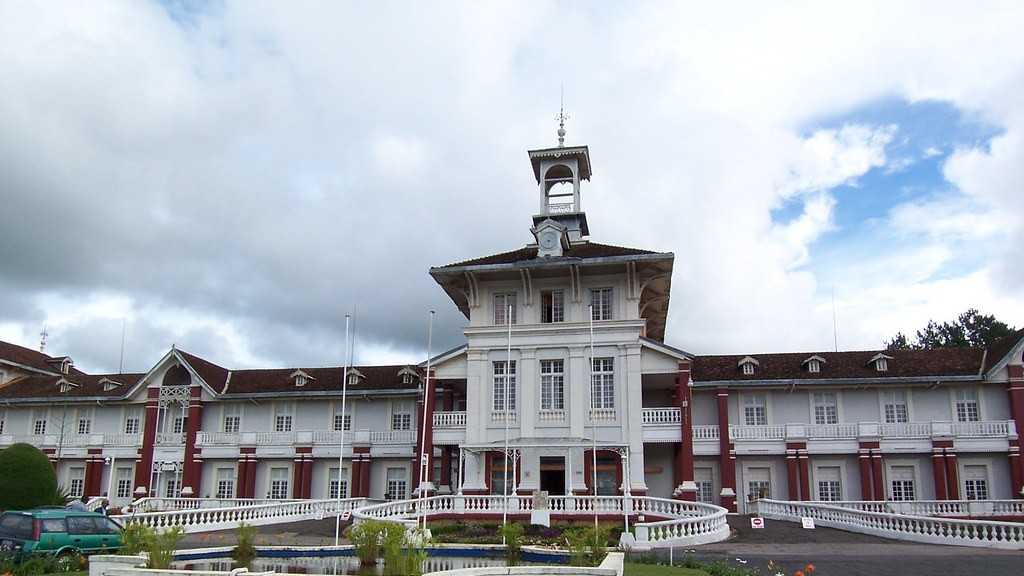Is Madagascar Good at Producing Food?
In recent years, the discussion around global food production has become increasingly important. With concerns about sustainability, climate change, and food security, it is crucial to understand the role that different regions play in producing food. One such region is Madagascar, an island country located off the southeastern coast of Africa. While Madagascar is known for its unique biodiversity and stunning landscapes, its record in food production has been mixed.
Madagascar has a predominantly agricultural economy, with around 80% of the population engaged in farming. However, the country faces several challenges when it comes to food production. Firstly, the island’s climate is characterized by cyclones, droughts, and unpredictable weather patterns, which can significantly impact agricultural output. Additionally, the country’s infrastructure, including roads and irrigation systems, is underdeveloped, making it difficult to transport goods and improve productivity.
According to the World Bank, Madagascar is highly vulnerable to food insecurity, with approximately 70% of its population living below the poverty line. The country also ranks low on the Global Hunger Index, indicating that it faces significant challenges in providing its population with adequate access to nutritious food. These factors suggest that Madagascar has a long way to go in becoming self-sufficient in food production.
However, it is important to note that Madagascar does have the potential to improve its food production. The country boasts fertile soil, diverse agroecological zones, and a wide range of crops that can be grown. With the right investments in infrastructure, agricultural research, and sustainable farming practices, Madagascar could increase its agricultural output and improve food security for its population.
Some experts believe that promoting small-scale farming and organic agriculture could be the key to unlocking Madagascar’s potential in food production. These approaches can not only improve yields but also protect the environment and enhance the livelihoods of rural communities. By emphasizing sustainable practices, Madagascar could position itself as a leader in organic farming, meeting the growing demand for eco-friendly and nutritious products worldwide.
In recent years, initiatives by local and international organizations have aimed to support agricultural development in Madagascar. For example, the World Food Programme has been providing assistance to vulnerable communities, helping them build resilience and improve their food security. Other organizations, such as Farm Africa and the Madagascar Biodiversity Fund, are working to promote sustainable agriculture and protect the country’s unique biodiversity.
While Madagascar still faces significant challenges in food production, there is hope for a brighter future. With concerted efforts from local communities, government, and international partners, the country can overcome its barriers and harness its agricultural potential. By investing in sustainable practices and empowering farmers, Madagascar can not only improve food security but also contribute to global efforts in achieving a more sustainable and equitable food system.
Challenges and Opportunities in Agricultural Infrastructure
The underdeveloped infrastructure in Madagascar poses a major challenge to food production and distribution. The lack of proper roads, storage facilities, and irrigation systems makes it difficult to transport goods and decrease post-harvest losses. To address these issues, investment in improving infrastructure is crucial. Developing road networks, enhancing access to markets, and promoting efficient irrigation techniques can significantly boost agricultural productivity.
Furthermore, the utilization of modern technologies such as precision agriculture, remote sensing, and climate forecasting can help farmers make informed decisions and adapt to changing weather patterns. These innovations can aid in optimizing resource allocation and improving overall agricultural efficiency.
Investing in agricultural research and development is also essential. By conducting research on crop varieties that are resistant to harsh weather conditions, pests, and diseases, Madagascar can enhance its resilience and ensure stable food production. Additionally, training programs and knowledge-sharing initiatives can help farmers adopt best practices and improve their productivity.
The Role of Sustainable Farming Practices
Adopting sustainable farming practices can play a crucial role in increasing food production while preserving the environment. Practices such as agroforestry, terrace farming, and organic agriculture can improve soil fertility, prevent erosion, and minimize the use of chemical inputs. These practices not only contribute to long-term food security but also mitigate the negative effects of climate change on agriculture.
Sustainable farming practices also offer economic benefits for farmers. By diversifying crops, implementing crop rotation, and integrating livestock into farming systems, farmers can improve their income and reduce their dependence on a single crop. Additionally, organic and sustainably produced food often commands a premium in the global market, providing an opportunity for farmers to earn higher profits.
Furthermore, encouraging women’s participation in agriculture can also have a positive impact on food production. Women play a crucial role in agricultural activities, yet their contributions often go unrecognized. By providing women with access to education, resources, and decision-making power, Madagascar can unlock their potential and enhance overall agricultural productivity.
The Importance of Diversification and Value Addition
Diversifying agricultural production and adding value to agricultural products offer avenues for growth and increased income for farmers. Instead of relying solely on traditional staple crops, such as rice and maize, promoting the cultivation of a diverse range of fruits, vegetables, and cash crops can enhance food security and capture new market opportunities.
Furthermore, investing in value addition activities, such as processing and packaging, can help farmers increase the value of their products and tap into higher-value markets. Additionally, value addition can contribute to reducing post-harvest losses, extending the shelf life of perishable goods, and ensuring better income for farmers throughout the year.
Developing strong agricultural value chains and fostering linkages between farmers, processors, and markets are crucial for the success of diversification and value addition efforts. This requires collaboration between government, private sector actors, and development organizations to provide necessary infrastructure, training, and access to finance.
The Role of International Aid and Collaboration
International aid and collaboration can play a significant role in supporting Madagascar’s efforts to improve food production. By partnering with donor countries, international organizations, and non-governmental organizations, Madagascar can access technical expertise, financial resources, and best practices in agriculture.
International collaboration can also facilitate knowledge exchange and technology transfer. Learning from successful agricultural models in other countries can help Madagascar overcome its challenges and implement effective strategies for sustainable food production. Additionally, research partnerships with international institutions can enhance agricultural research and development in the country.
Furthermore, international markets offer opportunities for exporting agricultural products from Madagascar. By adhering to international quality and sustainability standards, such as Fairtrade and organic certifications, the country can tap into niche markets and create new avenues for economic growth.
In conclusion, while Madagascar faces significant challenges in food production, the country has the potential to improve its agricultural sector with the right investments and strategies. By addressing infrastructure gaps, promoting sustainable practices, diversifying production, and engaging in international collaboration, Madagascar can enhance food security, uplift rural communities, and contribute to global efforts in achieving a sustainable and equitable food system.





